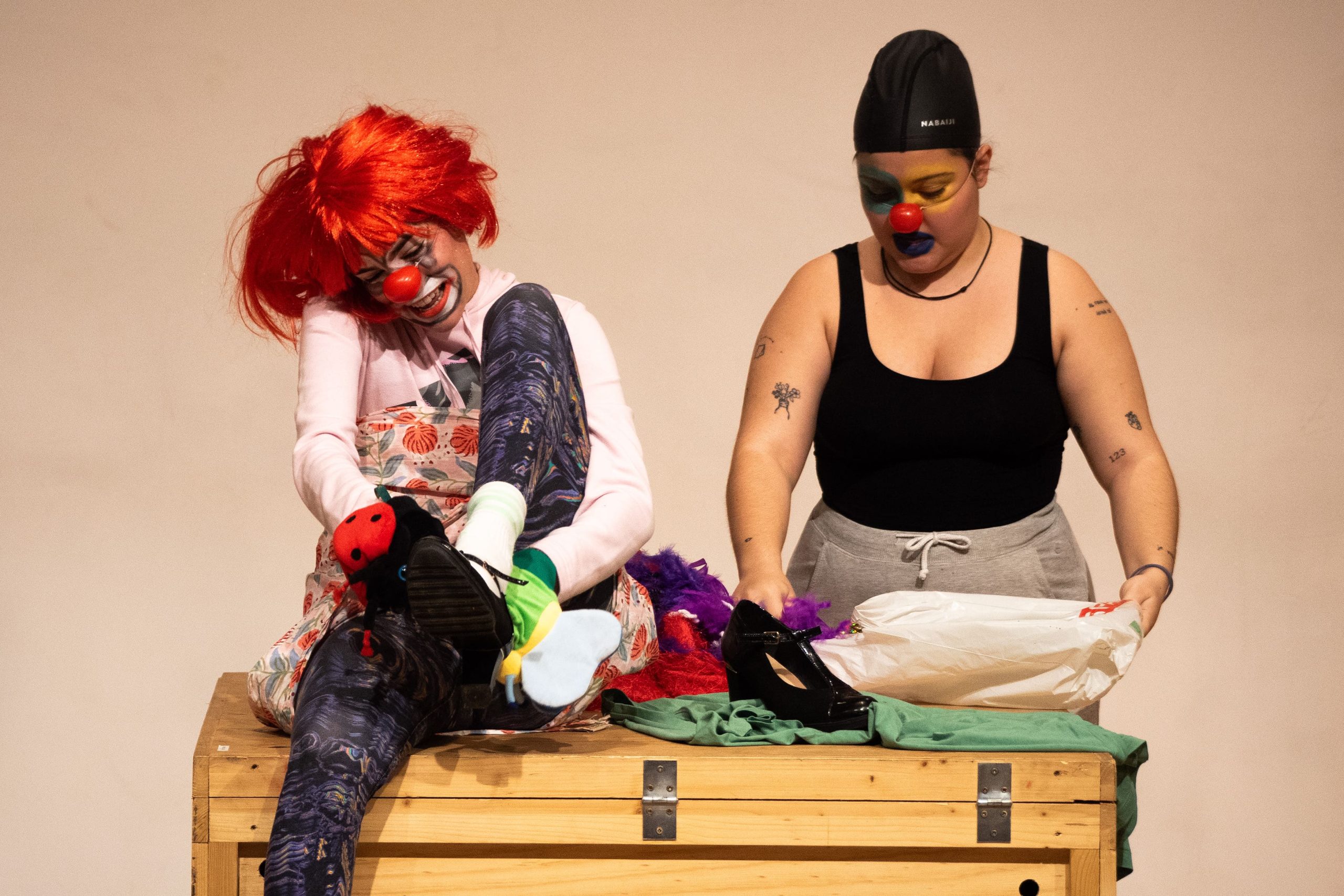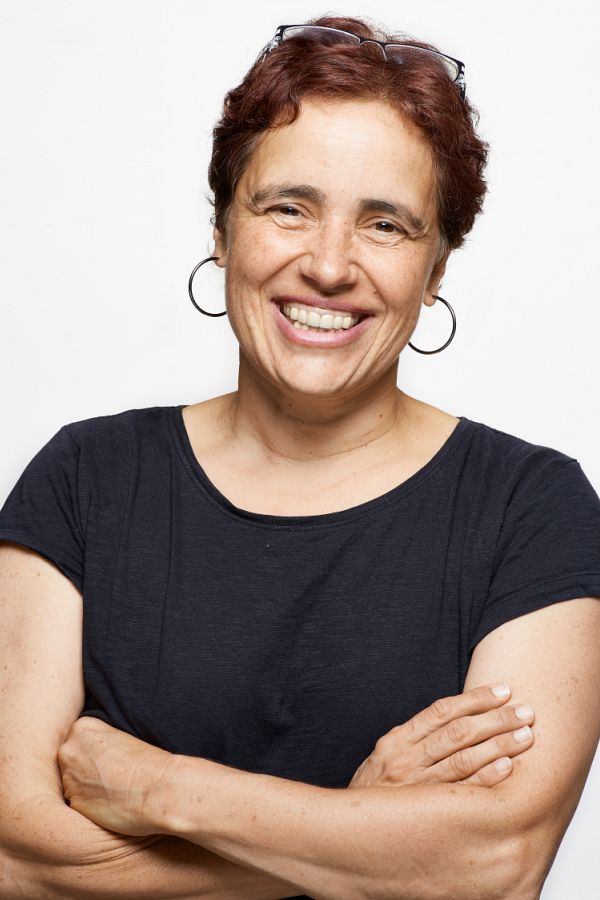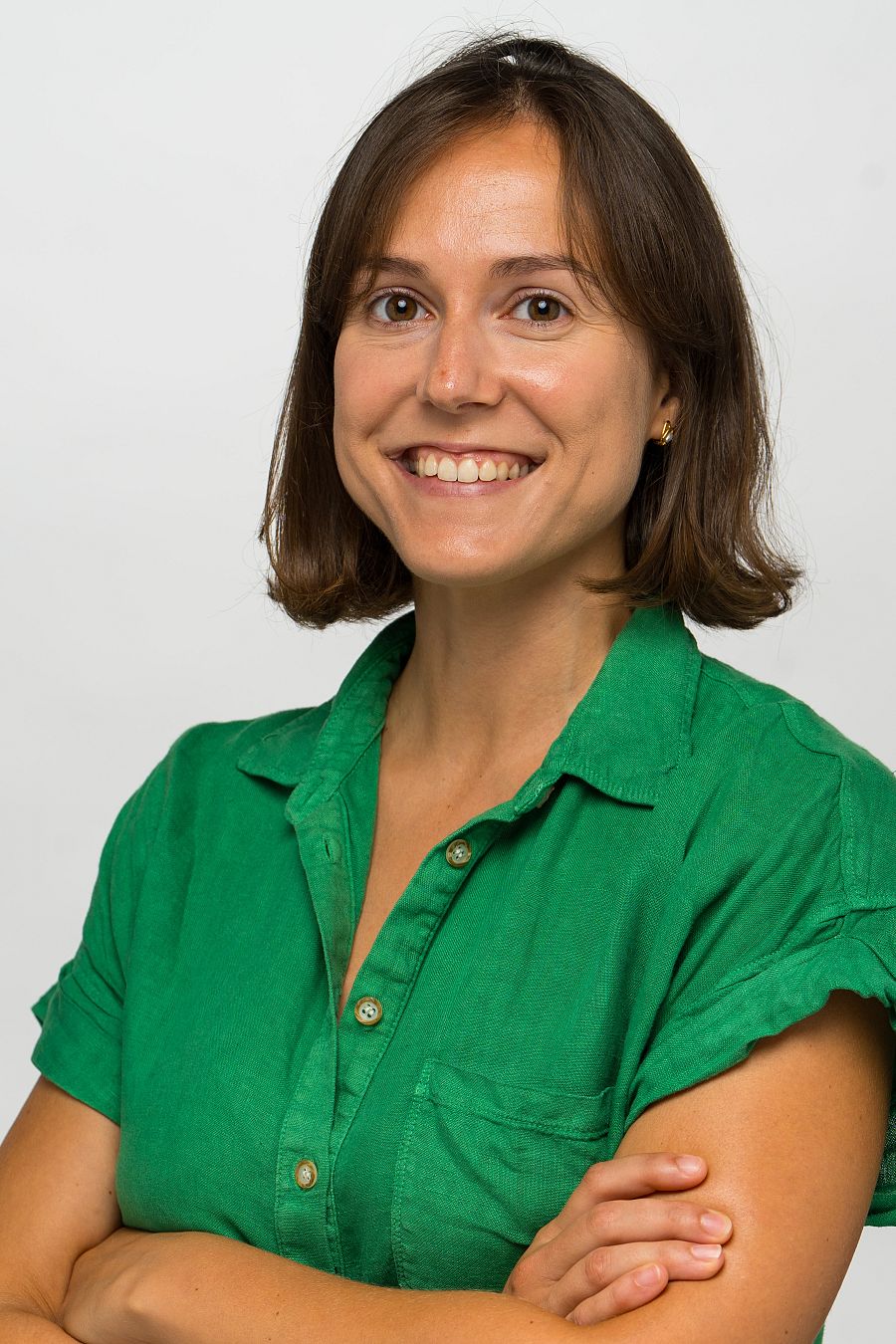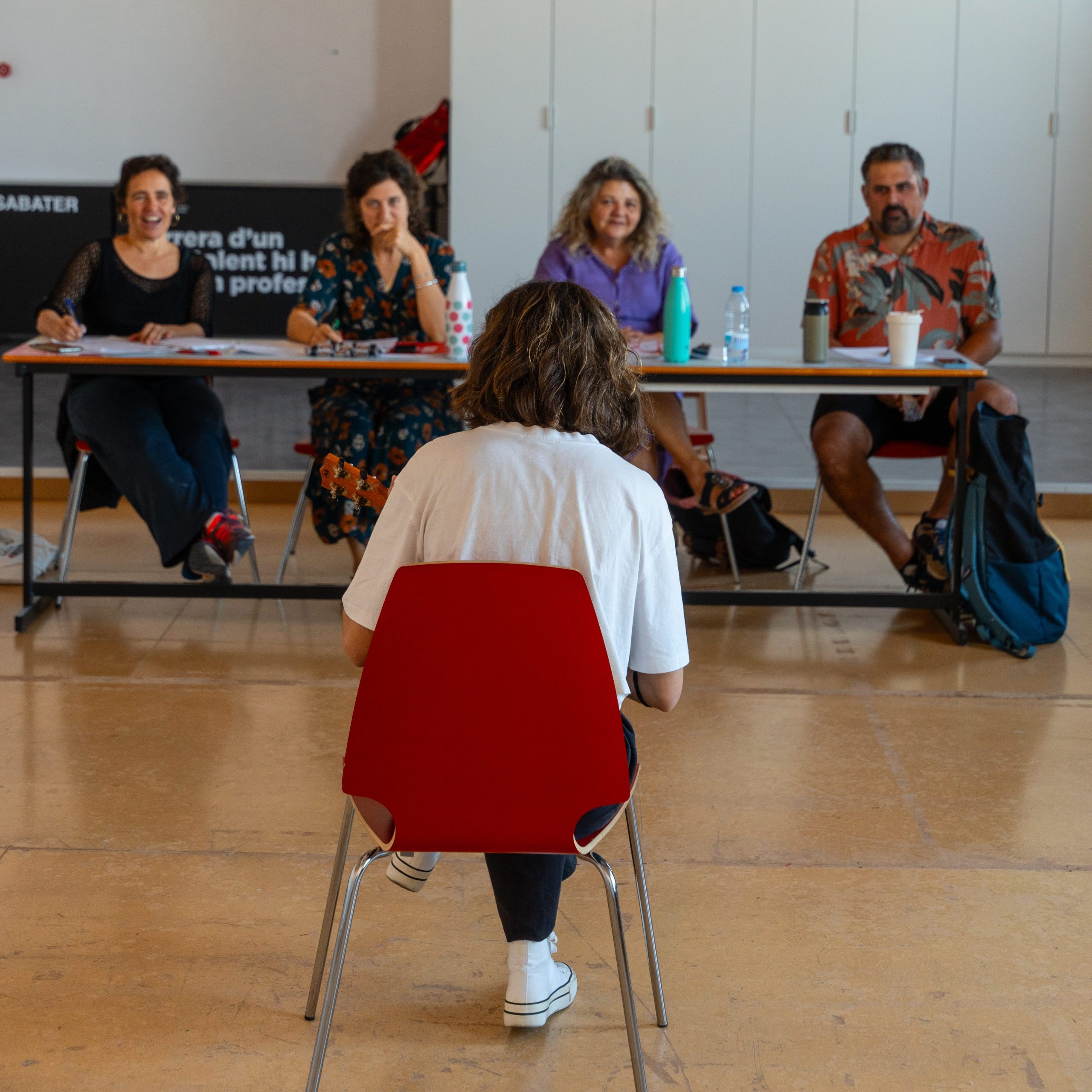
Interview with Sílvia Escuder and Laura Pujol: coordinators of the Degree in Performing Arts.
For Sílvia Escuder and Laura Pujol, coordinators of the Degree in Performing Arts, the degree goes beyond learning the craft and prepare for the professional sector; there is a very important component of personal growth for students.
Sílvia, what do you do and what have you done at ERAM?
Sílvia:
I do the pedagogical coordination of the Degree in Performing Arts and I teach body language classes. I am mainly interested in body expression as a global tool for the actor: emotion, voice, energy…

Sílvia Escuder (Agramunt, J.)
I also take the subject of Scope 1 with the Aïna R. Marés, where for three weeks classes are canceled and only work is done to create a scene. It is a subject where the work of the different first year subjects materializes. There is an approach to group work, listening, energy, presence, availability towards the group, rhythm… I also take, together with Aïna, the subject of acting training. And part of the credits of interpretation in front of camera by third party.
I combine teaching with the work I do as an actress. Recently, outside the ERAM, I premiered at High Season a text by Ferran Joanmiquel, dramaturgy teacher and applied performing arts, which he himself directed; A Woman Without a Name, work produced by Teatre La Mercantil, in Balaguer.
And you Laura?
Laura:
I was a student in the first promotion of ERAM Performing Arts Degree (2014-2018). To do the degree internship I entered Bitò Produccions, who has Temporada Alta, and then I became a production assistant for 6 years. Currently, I work coordinating the open activities of the resident companies of El Canal, the creation center that shares space with ERAM at Coma Cros. I have also returned home as coordinator of the degree with Sílvia, a very motivating job because the degree has not stopped improving since I took it.

Laura Pujol (Agramunt, J.)
What we are looking for is to connect the students with the professional world throughout the four years by taking advantage of the opportunities of the territory as well as opening up to the public with projects such as the Creation Areas or the Esfera Exhibition.
“They come with a deep need to express themselves and discover themselves through the performing arts.” – Sílvia Escuder
What is the profile of ERAM Performing Arts students?
Sílvia:
The students of this degree have an incredible transformation from the time they enter at 18 until they leave at 22 or 23 years, when they graduate. When they start and we ask them their references in the performing arts, they are usually exclusively cinematographic references. They watch a lot of series but little theater. However, they come with a deep need to express and discover themselves through the performing arts. In other words, because there is a need for communication, to be themselves from the theater. There is a need to be alive on stage, to discover what they are like.
One thing that I see every year and find it beautiful is the ability to marvel at every new knowledge they receive in class, it is a constant discovery and opens their minds to many levels I, who now have a few years of experience, every year I see this ability to marvel and love and that everything goes through, everything is a discovery. It is necessary to keep alive the flame and the curiosity for what surrounds us, for what is happening, for the human being, for what brings us closer and distances us at the same time.
Laura:
Yes, many arrive without knowing exactly how to express this intuition, but they know that theater allows them to explore themselves. These are people who want to have a poetic and aesthetic relationship with the world. As they go through the degree, they make a very visible personal transformation, their way of seeing things changes, and they open up to new references.
“We work taking into account the uniqueness of each student, we do not work to create model actors, we work to create professionals with their own voice.” – Laura Pujol
What do you think is the strength of the degree?
Sílvia:
When students first enter, they may have an idea of what they want to do when they finish, but during the four years of the degree obtain knowledge and experience applicable to all professional profiles in the sector. This way we see how they grow with experiences, and this allows them to discover themselves while they study and in the end they have very varied options, they will not have specialized in a professional profile before even really getting to know it.
“We need the group to grow and train us stage-wise, it is indispensable in this profession.” – Sílvia Escuder.
Another strong point of the degree is the learning of creativity, of being able to propose. This forces them to ask themselves who I am in relation to the world, what I want, how I want to express myself, how I position myself in front of what surrounds me. Have judgment and be aware to decide where they want to go. Find your own voice. This is a very strong point that is worked on from the beginning, in different subjects. Give them the tools to explore, decide and make mistakes, obviously, to continue growing and learning. And all this, with an awareness of what it means to work with the group. How I work from listening to others, from humility, from respect. We need the group to grow and train ourselves on stage, it is indispensable in this profession.
Another strong point is that there is a very familiar atmosphere. We are a big family. The care shown towards students and their learning is personal, respecting the process, listening and individual needs.
We teachers meet regularly. There is a pedagogical council that works together with the entire teaching staff to keep improving. It is a degree that is alive, that is being transformed. We adapt to the pedagogical needs of the curriculum and the students to be consistent, adapting to the pedagogical needs of the students.
Laura:
Our strength is that we work in a unique and transversal way. Since the access is from selectivity or an official upper cycle, without filters or extra access tests, very varied student profiles enter. I think it’s a very positive thing, having this plural range enriches us. For this reason, we work taking into account the uniqueness of each student, we do not work to create model actors, we work to create professionals with their own voice.
The degree is not only theoretical, but very practical. The students have areas of creation from the first year and they do projects that connect them with the real world. Perhaps the project with which they culminate the degree, which is their Final Degree Project, is the opportunity to introduce yourself to the sector. From TFG projects we have been able to see how companies have been created that have worked and are active.

Level test during the first days of the 2023-24 academic year. From left to right, Sílvia Escuder, Aïna R. Marés, Montserrat Cristau and Alberto Díaz.
What would you say to someone who wants to study performing arts but is unsure?
Sílvia:
First of all, you have to listen to yourself and ask yourself what makes me doubt. What makes you hesitate? The fear, the prejudice, the shame, the fact that I think I won’t be able? If someone is not convinced, they can wait. You don’t have to be 18 years old to start training in this trade. Once you start, however, it takes a lot of work, self-discipline, commitment, effort, obviously. It’s a way of living. There must be a need that drives you to want to do it and keep doing it. An intimate, vital need. But if your intuition is leading you there, I’d say give it a try. The university, especially ERAM, is a very close space where we support students from the very beginning, and this helps a lot take the step You must also be clear that everything is small decisions, which degree you will study does not have to be a big decision. You can always redirect, there’s nothing wrong with trying it and changing your mind later.
“The sector is very broad and we all fit in, new positions are being created and many job exits.” – Laura Pujol
Laura:
I would tell them to come and see the school, to be part of the audience for the exhibitions we do to see how evolves our students and where they will go if they finally decide to do the degree.
The ERAM is a very welcoming place and the teachers are very involved in the students’ growth, not only academically, but personally.
They must be clear that in this degree the tools are given so that the students have the basic knowledge, then you as a professional must always continue to train . A trade is like a marathon, you always have to keep learning. You need to ask yourself what you want to talk about, what is your proposal as a professional. You have to try to make mistakes and try again, learn and build a path independently.
A reflection that I like to make to young women who want to enter the degree is; do you want to work in the performing arts sector or do you want to be famous? Because they are two different things. The sector is very broad and we all fit in, new positions are being created and there is a broad career prospects.